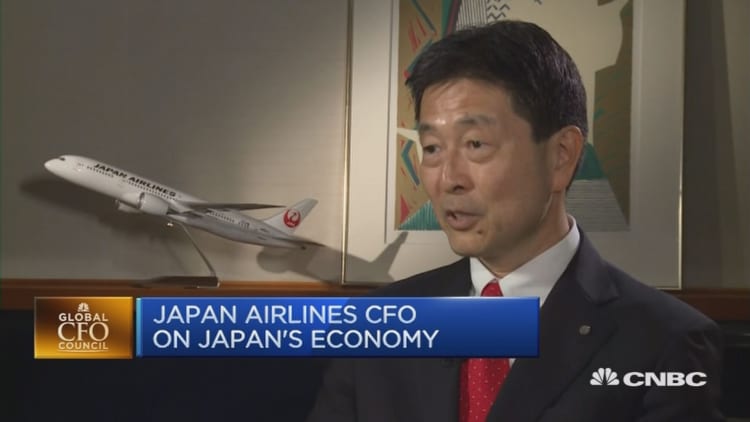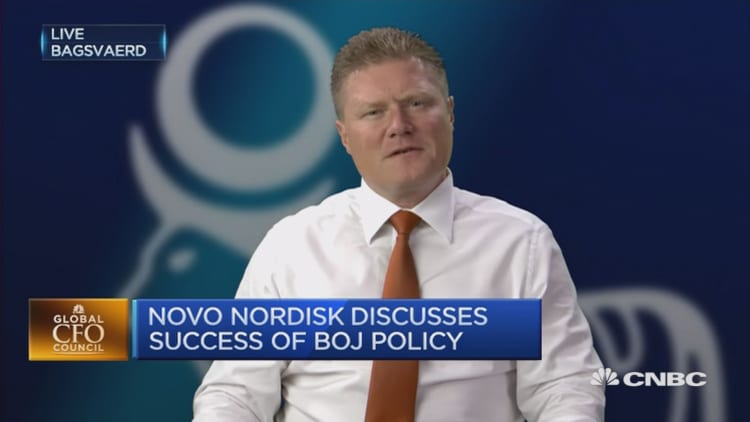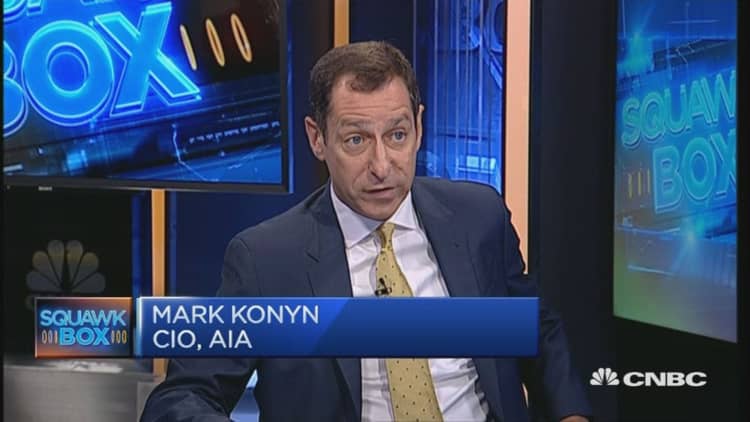The global shift to more fiscal, rather than monetary, stimulus received a rather dejected response from a CNBC survey showing little optimism among chief financial officers from the world's leading companies over new measures announced by the Japanese government.
Fifty-four percent of global chief financial officers (CFOs) across a wide range of industries said that new policies introduced by Japanese Prime Minister Shinzo Abe won't be any more successful in kickstarting the country's economy than previous measures. Just 22 percent of respondents believed that it would do a better job, while 24 percent said they didn't know, the new survey showed.
Fiscal planning from global governments have been the watchwords of the summer. Since the global financial crash of 2008, central bank policy had focused on buying up bonds in large quantities and cutting interest rates to record lows. Some have launched corporate bond purchase programs which have aided the ability of large companies to borrow. The Bank of Japan (BOJ) also introduced a negative interest rate earlier this year.
However, there has been a backlash from the investment community over the merits of monetary policy and whether it has reached its limit. Many now expect more fiscal planning by governments taking the strain, as seen by Japan and hinted at by the U.K. finance minister Philip Hammond. European Central Bank President Mario Draghi has also spoken of the benefits of fiscal policy, pointing the finger at Germany and hoping that policymakers pull their weight alongside the central bank.



Japan's Abe has become the main proponent of this type of policy, following years of aggressive measures by the BOJ that have weakened the yen. Abe's cabinet approved 13.5 trillion yen ($132.04 billion) in fiscal measures in early August. The package contained 7.5 trillion yen in spending by the national and local governments and reportedly also handouts of $150 each to 22 million low-income people.
When asked whether other national governments should be following Japan's example and doing more to help their own economies, the CNBC survey respondents were equally apathetic. Fifty-four percent of respondents said that governments shouldn't follow in the footsteps of Japan. Forty-one percent said they should, with 5 percent responding they they didn't know.
Norikazu Saito, Japan Airlines CFO and one of the survey respondents, told CNBC Tuesday that Japan's growth rate is currently "very sluggish" and said that consumers aren't willing to spend as they are anxious about the future and impending tax hikes.
"They are worried and are not willing to spend so much," he said, adding that growth will continue to underperform next year. "The biggest risk at this moment is the business confidence for the Japanese economy. That may be further impacted by the yen's appreciation."
Jesper Brandgaard, chief financial officer at Novo Nordisk, told CNBC Wednesday that fiscal expansion was positive, however, he said that structural reforms were needed in both Europe and Japan.
"I think that the politicians are basically deferring the pain of doing that on their electorate. However, it's still called for in both those regions," he said.
Complete survey results below:
(Note: 46 of the 107 current members of the CNBC Global CFO Council responded to this quarter's survey, including 25 U.S.-based members. Members represent a diverse mix of public and private companies from around the world, with more than $4 trillion in market capitalization.)






